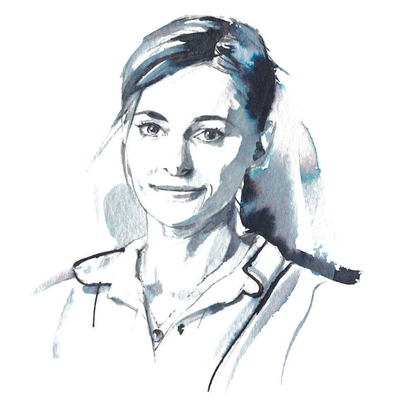Spring and the art of being sad
It's not the season to be sad. Spring is currently showing its most charming side, everything is blooming and enticing. But it is strangely complicated to appreciate this in the current situation. That's why it's also normal to be a little sad.
Normally, such a spring would open hearts, people would flock to the streets, the women lightly dressed, the men adventurous, people would meet and celebrate life, spend cosy evenings with stimulating conversations, perhaps by the lake, their eyes fixed on the pearl necklace of light that nestles on the opposite shore.
Instead, we sit at home. Or on the phone. Or dispose of the glass, which has become the highlight of the day. I'm not complaining, because I have the privilege of a nice flat and two great flatmates, who also happen to be my children, and I can work from home. It's nice to be able to spend so much time with my teenagers, one of the few good things I can take from corona.
Accordingly, I try to be of good cheer and concentrate on the present. Displacement. But that doesn't always work, no matter how beautiful the spring day outside is. Somewhere there is sadness, somewhere deep inside. Sometimes it comes along quite pleasantly, like the plot of one of the films you're watching now. A handshake, a hug and a kiss - hello? Those were the days when you were allowed to do that. They were not so long ago and seem so far away.
We are probably still too frightened to realise it properly, but this kind of grief and the pain of parting will continue to haunt us in all its forms for a long time to come.
This awareness hurts. The loss is omnipresent. I miss the restaurants and bars, the people, the crowded streets, the frivolity with which we interacted. I think of the people who worked in the restaurants and bars. What will they do now? I think of the concerts that won't take place and all the musicians who can no longer work. I miss the exhibitions and museums, I miss the art trips with my mum.
We are probably still too frightened to realise it properly, but this kind of grief and the pain of parting will continue to haunt us in all its forms for a long time to come: denying, playing down, denouncing, mourning and finally accepting.
We know it's only temporary, but it doesn't feel like that.
David Kessler, who as co-author of the Kübler-Ross standard work on bereavement is an expert in the field, puts it this way in an interview with the Harvard Business Review: «We know the world has changed, we know it's only temporary, but it doesn't feel like that. We realise it's all going to be different. (...) The loss of normality, the fear of the economic consequences, the loss of social ties. It affects us and we mourn. Collectively.»
At least we have spring, which doesn't let itself be impressed.
Michèle Binswanger's diary at a glance:
- Zeiten-Paradox im Lockdown
- Ausgehungert nach Freunden
- Lockdown-Bilanz und eine Prise Optimismus
- Frühling und die Kunst, traurig zu sein


